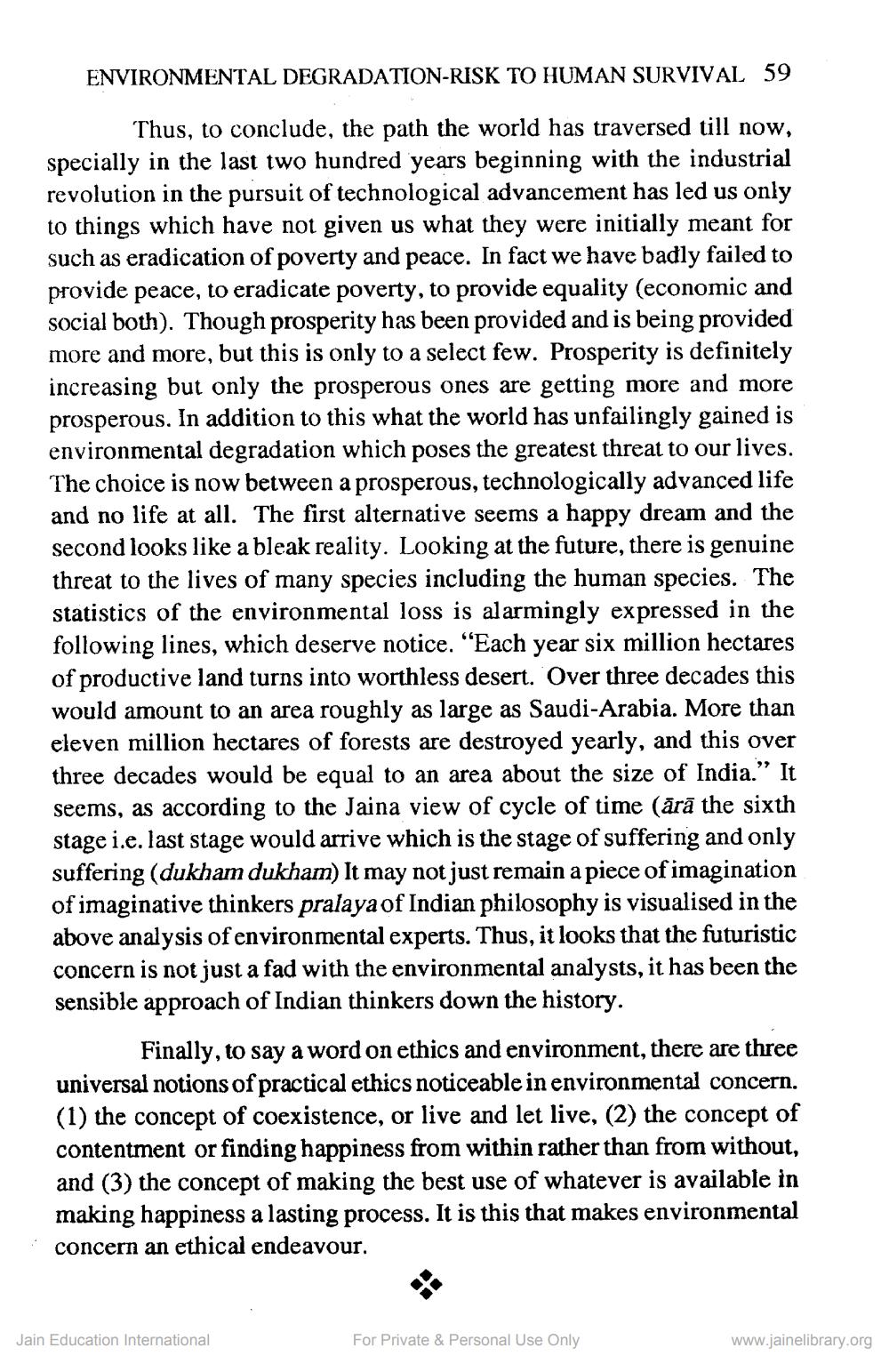________________
ENVIRONMENTAL DEGRADATION-RISK TO HUMAN SURVIVAL 59
Thus, to conclude, the path the world has traversed till now, specially in the last two hundred years beginning with the industrial revolution in the pursuit of technological advancement has led us only to things which have not given us what they were initially meant for such as eradication of poverty and peace. In fact we have badly failed to provide peace, to eradicate poverty, to provide equality (economic and social both). Though prosperity has been provided and is being provided more and more, but this is only to a select few. Prosperity is definitely increasing but only the prosperous ones are getting more and more prosperous. In addition to this what the world has unfailingly gained is environmental degradation which poses the greatest threat to our lives. The choice is now between a prosperous, technologically advanced life and no life at all. The first alternative seems a happy dream and the second looks like a bleak reality. Looking at the future, there is genuine threat to the lives of many species including the human species. The statistics of the environmental loss is alarmingly expressed in the following lines, which deserve notice. "Each year six million hectares of productive land turns into worthless desert. Over three decades this would amount to an area roughly as large as Saudi-Arabia. More than eleven million hectares of forests are destroyed yearly, and this over three decades would be equal to an area about the size of India." It seems, as according to the Jaina view of cycle of time (ārā the sixth stage i.e. last stage would arrive which is the stage of suffering and only suffering (dukham dukham) It may not just remain a piece of imagination of imaginative thinkers pralaya of Indian philosophy is visualised in the above analysis of environmental experts. Thus, it looks that the futuristic concern is not just a fad with the environmental analysts, it has been the sensible approach of Indian thinkers down the history.
Finally, to say a word on ethics and environment, there are three universal notions of practical ethics noticeable in environmental concern. (1) the concept of coexistence, or live and let live, (2) the concept of contentment or finding happiness from within rather than from without, and (3) the concept of making the best use of whatever is available in making happiness a lasting process. It is this that makes environmental concern an ethical endeavour.
Jain Education International
For Private & Personal Use Only
www.jainelibrary.org




